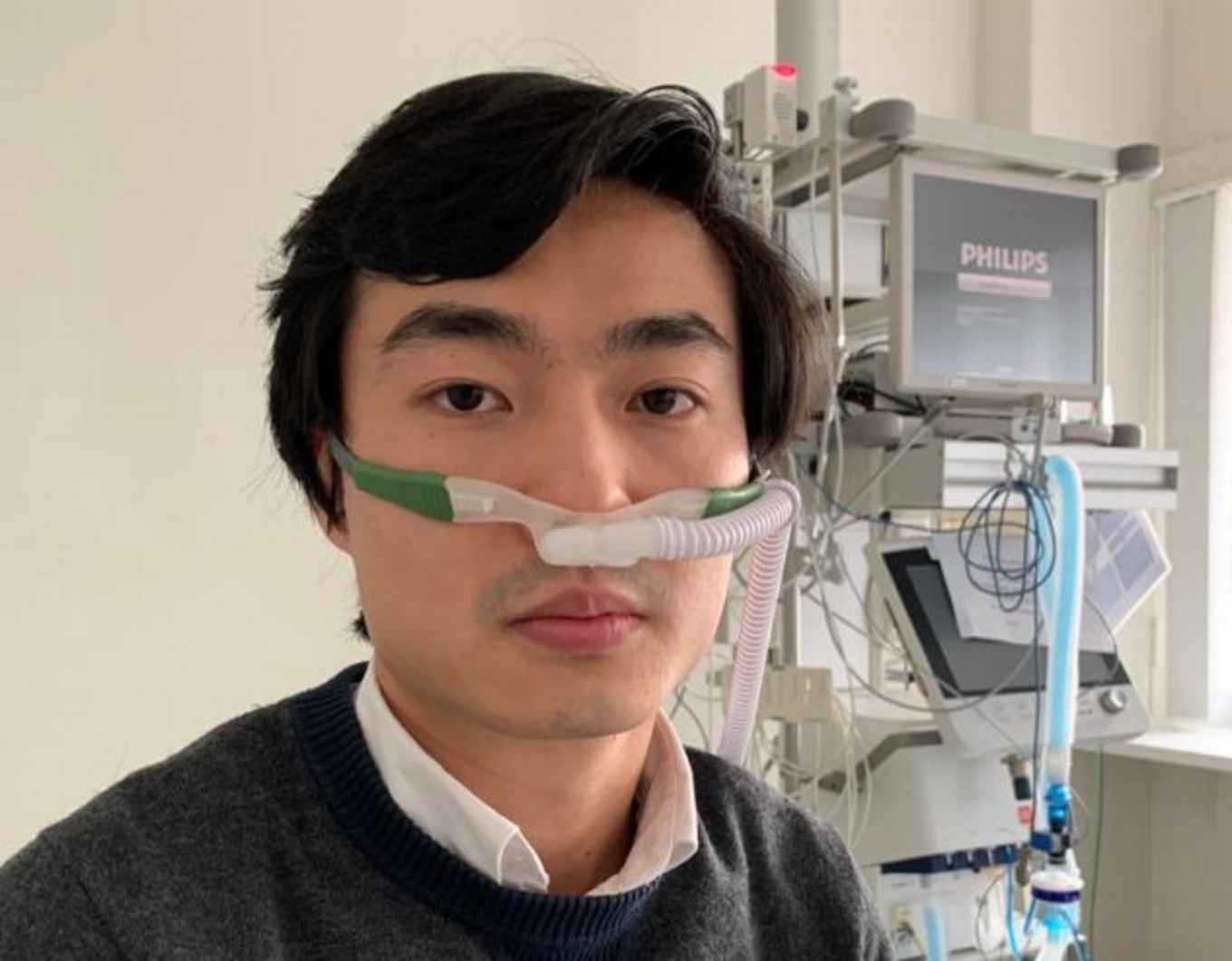No increased risk of aerosols with special nasal cannula
16 February 2021

According to the researchers, which include UvA physicists Daniell Bonn and Stefan Kooij, the result takes away the worries about the use of high flow nasal oxygen (HFNO). This is a special technique used to administer a high flow of heated and moistened oxygen to the (Covid) patient through a nasal cannula.
No increased risk
Medical researcher Reinout Bem, first author of the publication, says: “Confirming the few already known experiences, this study indicates that HFNO does not increase the risk of aerosol formation when compared to ordinary oxygen therapy using a nasal attachment. This suggests that there is no higher risk to transmit pathogens like the coronavirus to health care workers when using HFNO.” The reasearchers therefore argue that in times when ICUs and respiration units are scarce, one should not be holding back when applying HFNO to covid patients. This can hopefully contribute to reducing the number of patients that need artificial respiration.
Severe pneumonia
The investigated technique is already being used to treat severe cases of pneumonia in ICUs. The technique can also potentially be applied to patients at the nursing ward. This could prevent the need for the patient to undergo much more drastic artificial respiration at an ICU, by inserting or intubating a flexible tube into the trachea. Until recently, doctors and nurses feared that using HFNO increases the risk of a coronavirus infection. Using strong flows of air would potentially facilitate the formation of tiny droplets - aerosols. This would then increase the risk for health care workers to be infected. According to Reinout Bem and his colleague Alexander Vlaar, this fear has its consequences: “For this reason, many practicioners use this method less or not at all in covid cases, and intubate instead.”
Laser light
The contribution of the IoP physicists to the research was to study aerosol formation during HFNO using laser light and droplet detectors, and comparing the results to 'ordinary' oxygen masks. The research group has previously used the same techniques to map the effects of ventilation in confined spaces such as elevators on aerosol formation when speaking or coughing. In the present research, the differences between HFNO respiration and ordinary oxygen therapy were investigated in three healthy subjects and fifteen covid patients.
Publication
Risk of aerosol formation by high flow nasal cannula treatment in critically-ill patients, Reinout A Bem, Niels van Mourik, Rozalinde Klein-Blommert, Ingrid J B Spijkerman, Stefan Kooij, Daniel Bon and Alexander P. Vlaar, Respiratory Care 08756 (2021).